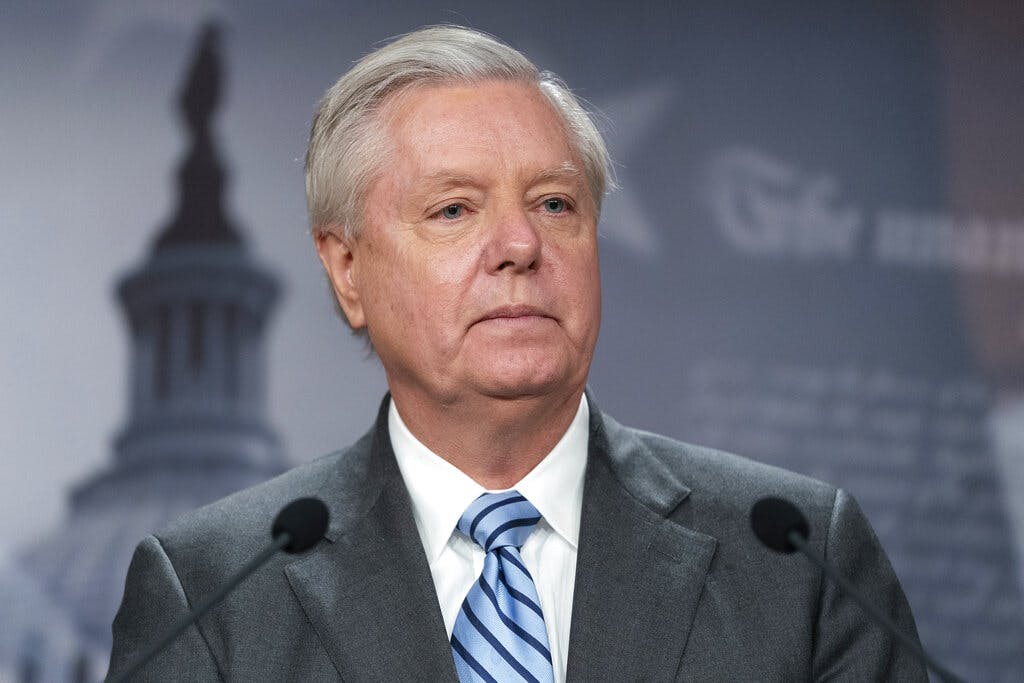Lindsey Graham Goes to the Supreme Court
The Constitution protects legislators under the speech and debate clause — without exceptions for matters that are ‘political.’

It’s shocking to us that Senator Graham has to turn to the United States Supreme Court for protection against an order that he testify before a grand jury in Georgia. The grand jury is looking into whether there was improper interference in respect of counting the vote in the 2020 election in the Peachtree State, and it wants to question Mr. Graham. He’s standing on his privileges and immunities as a member of the Senate.
Particularly the speech and debate clause. The clause is American bedrock. It is one of the props in our constitutional system of separated powers. It prevents the other branches of the federal government from pestering or hamstringing the legislature. The clause appears in Article I, Section 6. It says of Senators and Representatives that “for any Speech or Debate in either House, they shall not be questioned in any other Place.”
We have written before — in an editorial called “Any” — about the radicality of this clause. The Constitution doesn’t protect the solons from questioning on “most” or “some” or “many” or “various” speeches and debates. It protects them from being questioned outside of the Senate or House on “any” speech or debate. And not just in Georgia but in “any” other place. Not “most” or “many” other places but “any” other place.
Yet the United States District Court for the Northern District of Georgia doesn’t speak plain English. It is prepared to allow Senator Graham to be questioned because — as Mr. Graham puts it — his speech and debate had a “supposed political ‘purpose.’” Or, as Mr. Graham also puts it, “The court speculated that Senator Graham was motivated, not for purely ‘legislative’ reasons, but instead to help President Trump.”
Ay, there’s the rub, too. The District Court — like much of the rest of our governmental apparatus these days — is under the impression that the Constitution doesn’t apply in matters related to President Trump. If the 45th president might be involved, all rules and regulations go out the window. We carry no brief for that mastodon. We are just amazed at the way normal constitutional concepts are tossed aside when a matter pertains to Mr. Trump.
Not only is the District Court wrong, Mr. Graham argues, but the senator was acting in his official “capacity for legislative” as opposed to political — “reasons.” Why, though, should that distinction have to be drawn? Everything the Senate does is political. When a senator breathes it’s political. And the politicality of what the Senate does is a virtue. That’s what the Senate was created to do — politics. Passing laws is political. In the Senate, sneezing is political.
The Constitution, in any event, doesn’t exclude from protection under the speech and debate clause matters that are “political.” It doesn’t place limits at all on the speech and debate that is immune from questioning outside of the Senate. It grants Senators immunity from questioning on “any” speech or debate. It could be legislative, political, medical, incriminating, diabolical, boastful, ironical, silly, irrelevant, pornographical, or religious.
So we’re with Senator Graham in his emergency application before the Supreme Court for a stay of the rulings in the lower courts. If the special grand jury at Fulton County, Georgia, can disregard the speech and debate clause, it’s hard to see who can’t — or what is left of this bulwark of separated powers. And at the rate we’re going, we’re going to need more than ever to be able to keep our governmental powers separated.

